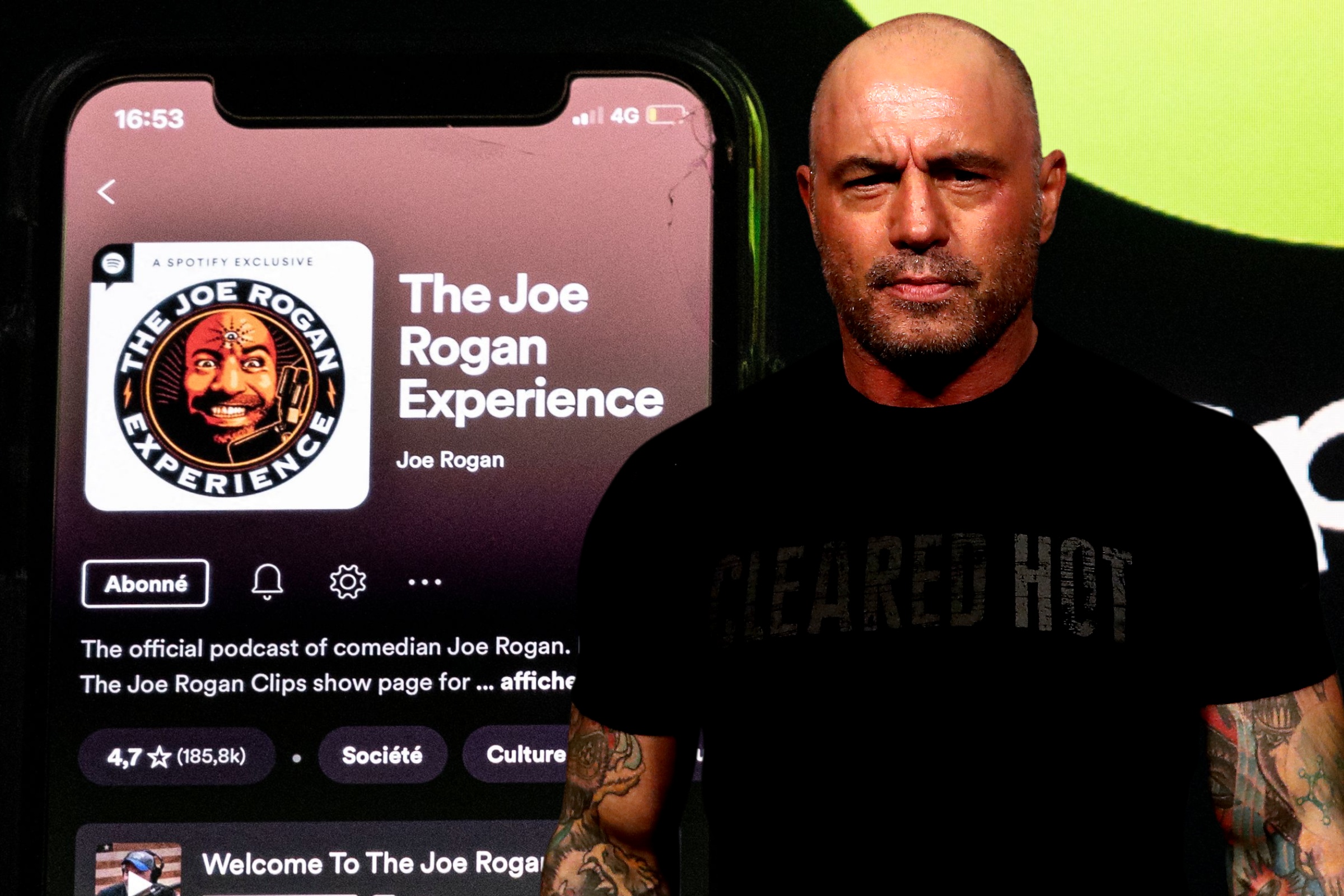Joe Rogan and the World of Zoos

Joe Rogan, a prominent podcaster and comedian, has expressed a significant interest in zoos and animal conservation. This interest is evident in his podcast, “The Joe Rogan Experience,” where he frequently discusses animal welfare, conservation efforts, and the role of zoos in society.
Rogan’s Views on Zoos
Rogan’s views on zoos are nuanced and often reflect a balanced perspective. He acknowledges the importance of zoos in educating the public about wildlife and promoting conservation efforts. However, he also raises concerns about the ethical implications of keeping animals in captivity, particularly regarding their well-being and the potential for stress.
- Rogan has interviewed numerous zookeepers, animal behaviorists, and conservationists on his podcast, gaining insights into the challenges and complexities of managing zoos.
- He has expressed support for zoos that prioritize animal welfare and provide enriching environments for their animals. He has also advocated for responsible breeding programs to ensure the genetic diversity of captive populations.
- Rogan’s discussions often delve into the ethical considerations of keeping wild animals in captivity, exploring the trade-offs between the educational and conservation benefits of zoos and the potential impact on animal well-being.
Rogan’s Impact on Zoo-Related Issues
Rogan’s podcast has a massive following, and his discussions on zoos have undoubtedly contributed to raising awareness about animal welfare and conservation issues.
- His platform has provided a space for experts and advocates to share their perspectives on zoo management and animal welfare, reaching a vast audience.
- Rogan’s open and often critical discussions have encouraged viewers to engage with these issues and consider the ethical implications of zoos.
- His influence has prompted some zoos to re-evaluate their practices and prioritize animal welfare, while also inspiring others to improve their educational and conservation efforts.
The Role of Zoos in Modern Society: Zookeeper Joe Rogan

Zoos, as we know them today, have a long and complex history, evolving from royal menageries to modern conservation centers. Understanding their historical context is crucial to appreciating their multifaceted role in contemporary society.
Historical Evolution of Zoos
Zoos originated as royal menageries, showcasing exotic animals as symbols of power and wealth. Early zoos, like the Tower of London’s menagerie (established in the 12th century), were primarily for the amusement of the elite. The 18th and 19th centuries saw the rise of public zoos, with the Zoological Society of London opening its doors in 1828. These early zoos were driven by scientific curiosity and a desire to educate the public about the natural world.
Ethical Implications of Keeping Animals in Captivity
The ethical implications of keeping animals in captivity are a subject of ongoing debate.
- Supporters argue that zoos provide a safe haven for endangered species, offering protection from habitat loss and poaching. They also highlight the educational and research benefits of zoos, fostering conservation awareness and contributing to scientific understanding of animal behavior and biology.
- Critics, however, contend that captivity inherently restricts animal freedom and natural behaviors. They raise concerns about the psychological well-being of animals in confined spaces, emphasizing the importance of providing stimulating environments and enriching experiences. Furthermore, they question the effectiveness of captive breeding programs in contributing to wild populations.
Educational and Research Value of Zoos, Zookeeper joe rogan
Zoos play a significant role in education and research.
- They provide interactive exhibits and educational programs that engage visitors of all ages, fostering appreciation for biodiversity and conservation. Zoos also conduct research on animal behavior, reproduction, and health, contributing to our understanding of animal biology and conservation efforts.
- The research conducted at zoos can be crucial for developing conservation strategies, such as habitat restoration and captive breeding programs. By studying animals in captivity, scientists can gain insights into their behavior, physiology, and genetic diversity, which can be applied to wild populations.
The Future of Zoos and Animal Welfare

Zoos have evolved significantly over the years, moving away from the traditional model of caged exhibits towards a more naturalistic and enriching approach. However, there is still room for improvement in terms of animal welfare. The future of zoos lies in creating environments that are as close as possible to the animals’ natural habitats, providing them with opportunities for physical and mental stimulation, and contributing to conservation efforts.
A Hypothetical Future Zoo Experience
A hypothetical future zoo experience would prioritize the well-being of animals by creating environments that closely mimic their natural habitats. These environments would be designed with the animals’ needs in mind, incorporating natural features such as vegetation, water bodies, and terrain. Instead of traditional enclosures, animals would have access to spacious, interconnected habitats that allow for movement and exploration. For example, a future zoo might feature a large, naturalistic exhibit for elephants, with ample space for roaming, foraging, and social interaction. The exhibit would also include features like a mud bath, a watering hole, and a variety of trees and vegetation, providing opportunities for the elephants to engage in natural behaviors.
Emerging Technologies for Animal Welfare
Technological advancements have the potential to revolutionize animal welfare in zoos. For example, sensors can be used to monitor animal behavior and health, providing insights into their well-being and alerting zookeepers to any potential problems. These sensors can track various parameters such as movement patterns, sleep duration, and physiological data, allowing for early detection of stress, illness, or other issues. Another emerging technology is virtual reality, which can be used to provide animals with enriching experiences. For example, virtual reality can be used to create immersive environments that simulate natural habitats, allowing animals to explore and interact with their surroundings without leaving their enclosures.
Approaches to Animal Conservation
Zoos play a vital role in animal conservation through various approaches. One approach is ex situ conservation, which involves breeding animals in captivity to maintain healthy populations and reintroduce them into the wild. This approach is particularly important for endangered species whose wild populations are threatened by habitat loss, poaching, or other factors. For example, zoos have played a crucial role in the conservation of the black-footed ferret, a species that was once thought to be extinct. Another approach is in situ conservation, which focuses on protecting animals in their natural habitats. This approach involves activities such as habitat restoration, anti-poaching efforts, and community engagement programs. Zoos often support in situ conservation projects through funding, research, and partnerships with conservation organizations. Zoos also play an important role in education and awareness, educating the public about the importance of biodiversity and conservation. By providing opportunities for people to interact with animals and learn about their needs, zoos can inspire a sense of responsibility for protecting the natural world.
Zookeeper joe rogan – Joe Rogan’s “Zookeeper” persona is a testament to his comedic versatility, seamlessly transitioning between animal impressions and insightful commentary. This ability to connect with audiences through diverse styles is reminiscent of the cultural phenomenon known as “Shakes the Clown” shakes the clown , a character that defied categorization and resonated with viewers across generations.
Much like Shakes, Rogan’s “Zookeeper” embodies a unique blend of humor and sincerity, leaving a lasting impact on his audience.
Joe Rogan, the charismatic host of the popular podcast “The Joe Rogan Experience,” has gained notoriety for his wide-ranging conversations with guests from various fields, including comedy. His admiration for comedic talents like Adam Sandler is well-documented, as seen in their shared appreciation for the art of humor and storytelling.
joe rogan adam sandler This shared passion for comedy highlights the diverse range of topics that Rogan explores on his show, from the scientific to the entertaining, making him a compelling figure in the world of podcasting.
